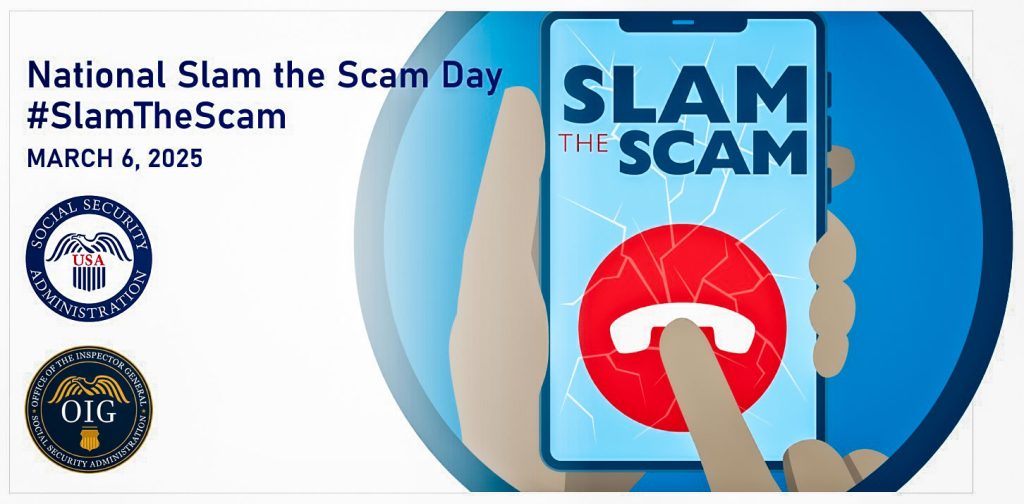Slam the scam

Unfortunately, government imposter scams continue to spread across the country. In these types of scams, criminals impersonate government employees to try to gain personal information or money from the unsuspecting. To raise awareness and help combat these scams, the Social Security Administration and the Office of the Inspector General have designated March 6 as National Slam the Scam Day.
Slam the Scam Day is part of the Federal Trade Commission’s National Consumer Protection Week (NCPW) which is March 2-8. This week is dedicated to sharing information about consumer rights and helping people learn to spot, report and avoid frauds and scams.
When you can recognize the signs of a scam, you have the power to ignore criminals and report the scam. Although scammers often change their messages and tactics to trick people, there are four basic signs that something is a scam:
To gain your trust, it pretends to be from an agency or organization you know.
It says there is a problem or a prize or that you owe money or taxes.
It pressures you to act immediately.
It tells you to pay in a specific way.
In addition, scammers might threaten you with arrest or legal action and might demand secrecy and say that you cannot tell anyone. If they contacted you via email or other written material, spelling errors and poor grammar in the message are red flags that it is a scam. Government agencies will not call, email or text you for money or personal information.
If you receive a suspicious call, text message, email, letter, or message on social media, report it right away. And help #SlamTheScam by spreading the word on social media. The more everyone knows, the harder it is for scammers to take advantage.
To report fraud or scams related to social security, visit oig.ssa.gov/report. To report other government imposter scams, visit reportfraud.ftc.gov. For more information about scams, fraud and NCPW, visit ssa.gov/scam and ftc.gov/ncpw.